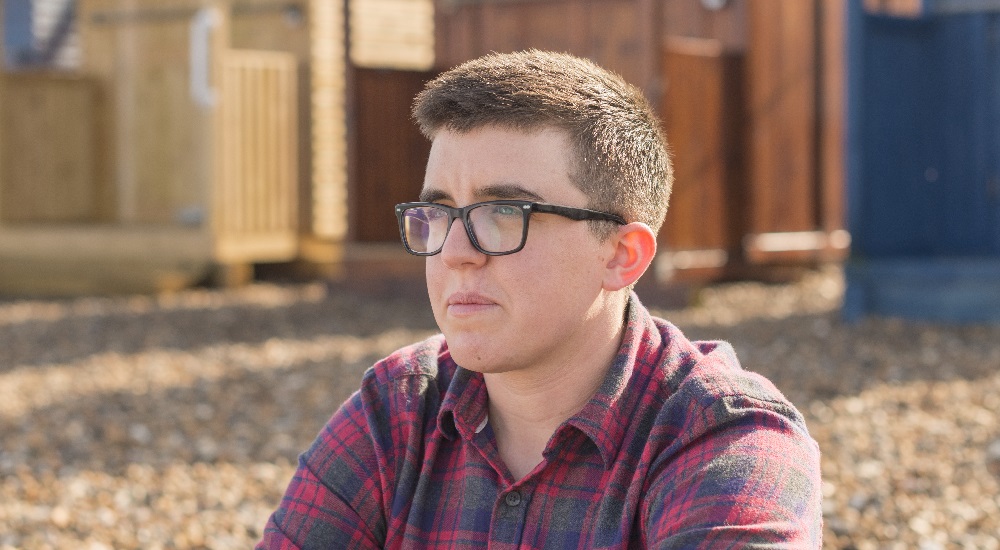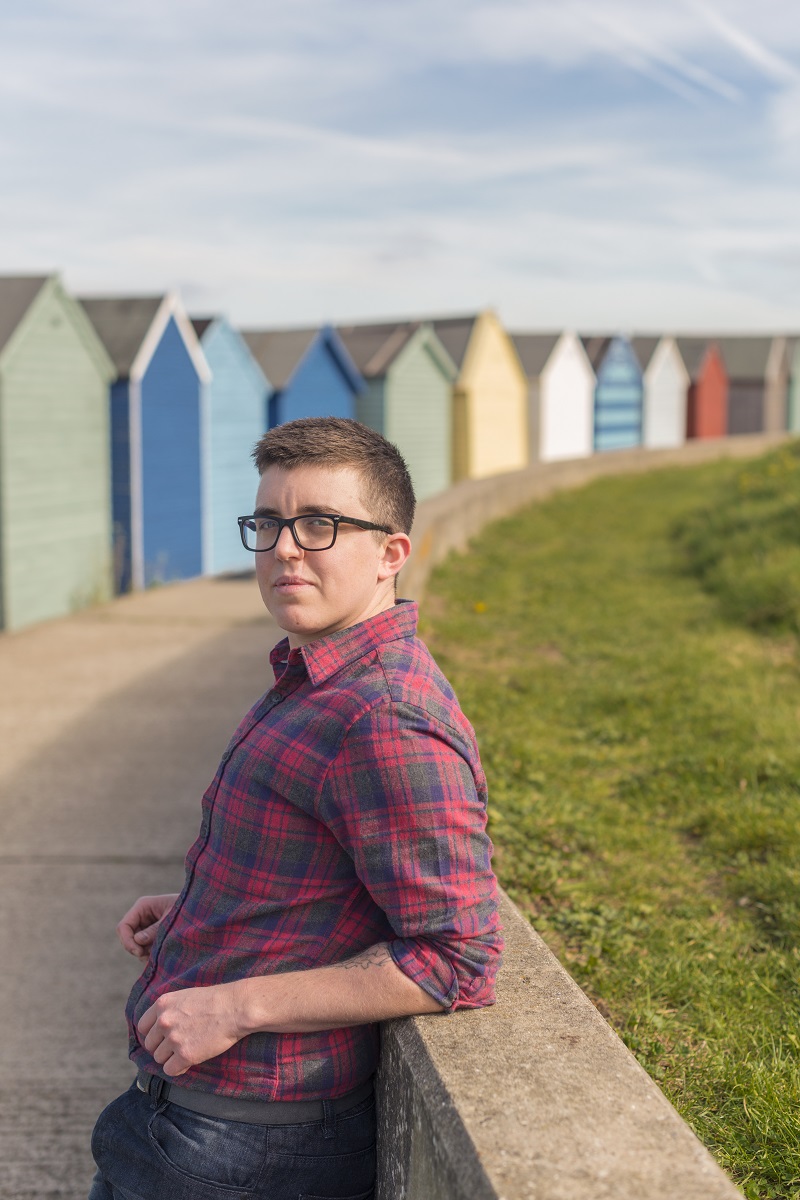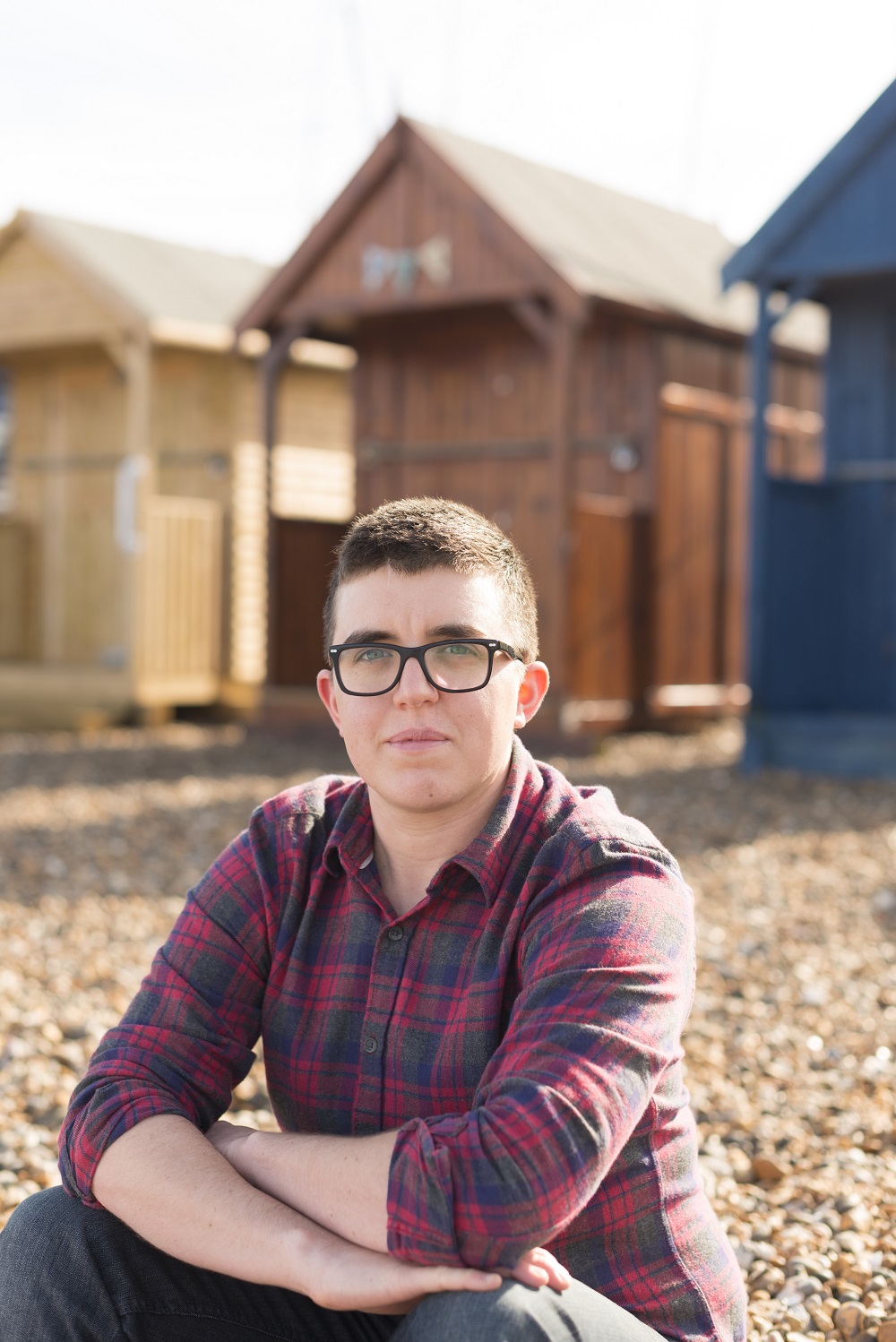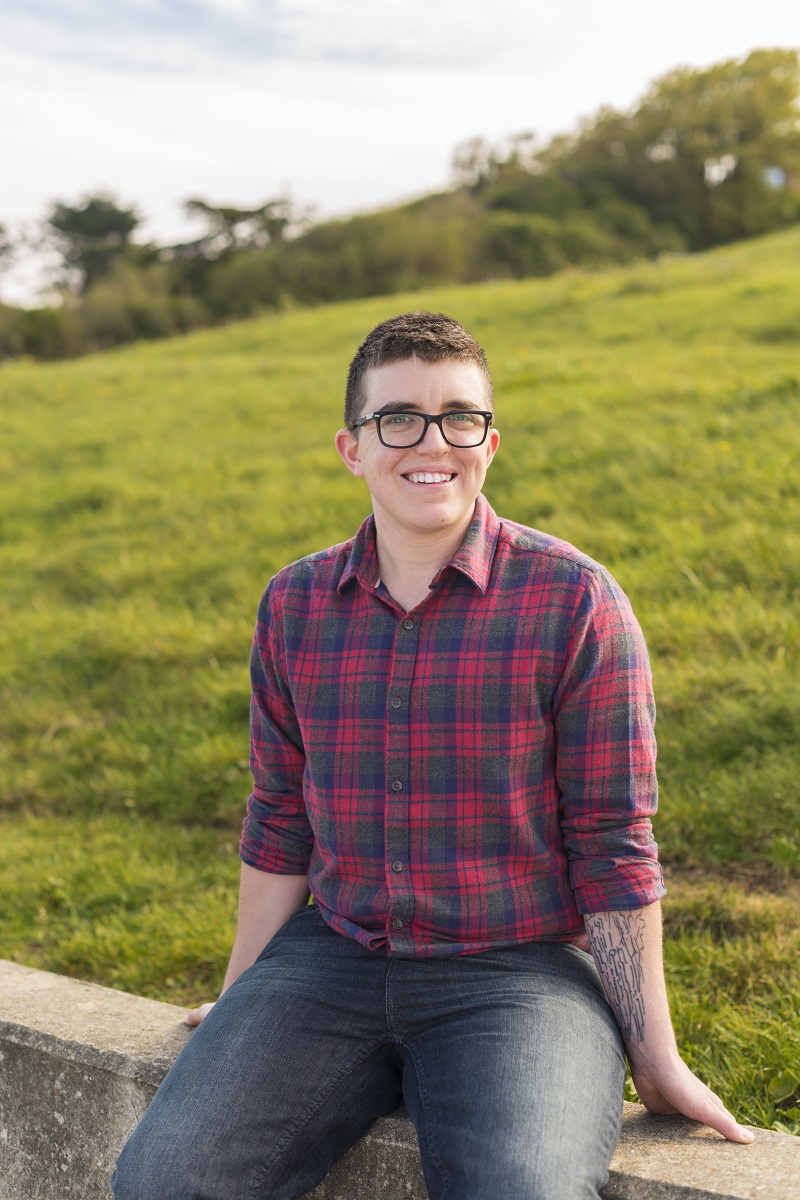‘My life as a gay trans man’
Finding acceptance hasn't always been easy for primary school teacher Chay Brown.
By Will Stroude

This article first appeared in Attitude issue 290, January 2018
Photography: Markus Bideaux
In many ways, I’m pretty typical for a gay man in his thirties. As a teenager, I secretly recorded Queer as Folk and watched it when my parents weren’t in. Now, as an adult, I socialise with friends and enjoy going to the theatre, have a love-hate relationship with dating apps and spend more time working than relaxing. The usual stuff, really.
One thing that makes life different for me, however, is that I’m transgender. I felt like a boy when I was really young, but quickly learnt to suppress, and then repress, my feelings of maleness. Everybody was calling me a girl and saying that I was just a tomboy; my gender wasn’t up for discussion. The feeling of maleness that I first noticed as a small child is difficult to describe. It’s not based on stereotypes of what men and women should be, it’s something far deeper.
During my teenage years and my twenties, I’d question my gender occasionally, but would push the feelings back down. Then, a few years ago, a conversation with a friend about identity led to my realisation and acknowledgement that I am a man, and from there, my need to transition grew stronger and stronger.
I’ve been lucky enough to have a supportive family and some amazing friends. I knew that I had nothing to fear by telling them that I’m transgender. I’d always been masculine, so it didn’t seem to come as a huge surprise to anyone.
Family members occasionally slip up with my pronouns, but I know it’s not on purpose. When somebody transitions, it can be a big adjustment for those around them as well.

As a primary school teacher, coming out at work was more complicated than it is for a lot of other trans men. I came out part way through the academic year, having already taught at the school for a year.
Before coming out, I searched online for stories of transgender teachers. The only one I could fi nd was about Lucy Meadows, who had committed suicide in 2013 after complaining of media intrusion. I was terrifi ed of the effect coming out might have on my working life, but I couldn’t go on being mistaken for a woman — it was too painful. My boss was supportive, but nobody really knew how the children or their parents would react.
By the time I came out publicly at work, I was already wearing men’s clothes, was binding my chest and had changed my name, so the groundwork was in place. The parents were supportive and conversations with the children were far less complicated than I expected. I explained to my class in very basic terms what it means to be transgender and they understood as much as they needed to. The very next day they were calling me Mr Brown and even correcting members of staff who got it wrong.
When I first started to transition, I would often be mistaken for a woman. Being spoken to using the wrong pronouns sounds so minor, but it can be enough to ruin my day. The fear of continuing to be mistaken for a woman meant I became very conscious of my appearance, mannerisms and pitch of my voice.
I chose my clothes carefully to hide my hips and the fact that I was wearing a binder. I’d do a full check of my body in the mirror to make sure I looked “male enough.” I would constantly analyse the way I carried myself in public. My voice didn’t break until six months after taking testosterone, so I trained myself to speak at a lower pitch; I’d get angry at myself if I ever let the pitch of my voice slip upwards.

Thankfully, I am now rarely mistaken for a woman, and I’ve reached a point where I don’t feel the need to monitor my mannerisms or movements.
Perhaps it’s easier for me because I’m gay, but I don’t mind people seeing me as having camp mannerisms. I’ve realised that there are a multitude of ways to be a man and they’re all valid. There’s a long way to go but I’ve reached a stage where I’m starting to feel more comfortable with myself.
One of the biggest challenges I face is transphobia. My pupils have shown such acceptance and understanding of what it means to be transgender that I find it staggering when adults find it difficult to grasp — especially those in the LGBT+ community.
Trans-related stories on online LGBT+ platforms are littered with derogatory comments such as “it’s a mental illness,” or “if you’re born with a vagina, you’re a woman.” These are often written by gay men who seem to forget that it’s not so long ago that homosexuals were themselves considered mentally ill and called perverts. Gay men had to fight many of the same battles that transgender people face today: bigotry and legal discrimination among them.
I’m not saying that most gay men are transphobic but I’m surprised by how many are, and the fear of being rejected has heavily influenced my approach to dating.
On my dating apps profile, I state that I’m trans, hoping that it will dissuade transphobic men from messaging me. But this tactic leaves me open to being asked all kinds of insensitive or overly personal questions. However, at least I can ignore or block guys who step over the line, and it helps me clear the hurdle of having to decide when to come out to someone.

Meeting guys has the potential to be more complicated: disclosing my transgender status is not my idea of a great conversation starter but if I leave it until later down the line, it may lead to rejection. If somebody doesn’t want to date me because I’m transgender, I won’t necessarily be offended, but I’d rather find out before getting too attached.
So, yes, life as a transgender gay man can be challenging. It’s all of the trials of being gay, with the added challenges of being transgender. If somebody asked if I would change it, I don’t know what I would say. I wouldn’t be the man I am today if I’d had different life experiences. And I’m pretty happy with the direction my life’s moving in now.
Yes, I’m single and I probably wish I wasn’t. Yes, I’m still having to rely on the NHS to keep my transition moving in the right direction. Yes, I experience painful transphobia.
But I’m in a job I love. My friends and family are amazing. I’m now confident enough to go to dance classes without worrying that it would make me less of a man, to be involved in political activism and help other trans people have their voices heard, to stand waving at thousands of people from the top of a bus at Brighton Pride.
I’m not ashamed to be trans. I’m not ashamed of being gay. I’m proud of myself and of how far I’ve come.
